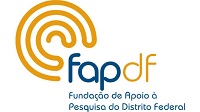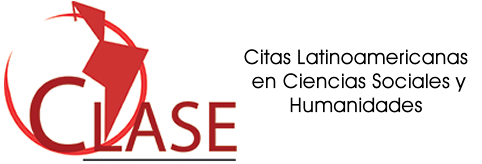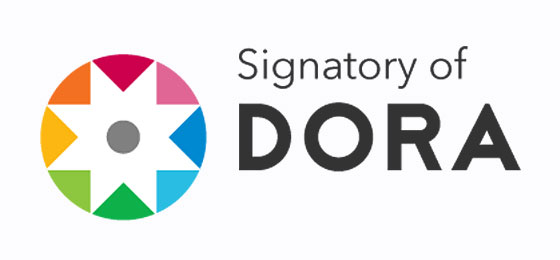Municipal elections and national crisis: electoral disputes in Brazil in 2016
DOI:
https://doi.org/10.1590/s0102-6992-201934020004Keywords:
Local elections, Brazil, 2016, Political PartiesAbstract
The 2016 marked the impeachment of President Dilma Rousseff (PT) and one of the hardest political crises since the Brazilian redemocratization in the early 1980s. One of the parties most affected by the national crisis was the “Partido dos Trabalhadores”. It remains to be seen how much the negative visibility of the party in the national arena has impacted local disputes. The article intends to analyze the results of the 2016 elections from aggregated variables. The democratization index is used to identify patterns of local democracy and to associate the performance of the major parties with these standards. The objective is to verify which parties have achieved better results in the current political conjuncture. The performance of candidates for councillor and mayor in the 5,600 municipalities in 2016 elections is analyzed.
Downloads
References
ALTMAN, D.; PÉREZ-LIÑÁN, A. Assessing the quality of democracy: freedom, competitiveness and participation in eighteen Latin American countries. Democratization, v. 9, n. 2, p. 85-100, 2002. [ Links ]
BARRETO, Alvaro A. de B. Reeleição para executivo municipal no Brasil (2000 a 2008). Revista Debates, v. 3 n. 2, p. 97-115, Porto Alegre, 2009. [ Links ]
BRAGA, Maria do S. S.; SPECK, Bruno. Organização partidária e carreiras políticas no nível local. XII Encontro Brazilian Studies Association (Brasa). Londres, 2014. [ Links ]
BRAMBOR, Thomas; CENEVIVA, Ricardo. Reeleição e continuísmo nos municípios brasileiros. Revista Novos Estudos Cebrap, n. 93, p. 9-21, 2012. [ Links ]
CAMPBELL, David F. J. The basic concept for the democracy ranking of the quality of democracy. Vienna: Democracy Ranking, 2008. [ Links ]
CHEIBUB, José A.; PRZEWORSKI, Adam. Democracia, eleições e responsabilidade política. Revista Brasileira de Ciências Sociais, v. 12, n. 35, Fev. 1997. [ Links ]
DAHL, Robert. Poliarquia: participação e oposição. São Paulo: Editora Universidade de São Paulo, 2005. [ Links ]
DIAMOND, Larry. O espírito da democracia: a luta pela construção de sociedades livres em todo o mundo. Curitiba: Instituto Atuação, 2015. [ Links ]
FELISBINO, Riberti de Almeida et alii. Somente um deve vencer: as bases de recrutamento dos candidatos à prefeitura das capitais brasileiras em 2008. Revista Sociologia e Política, v. 20, n. 41, p. 219-234, 2012. [ Links ]
FLEISHER, David. As eleições municipais no Brasil: uma análise comparativa (1982-2000). Revista Opinião Pública, n. 1, p. 80-105, Campinas, 2002. [ Links ]
HUNTINGTON, Samuel P. The third wave: democratizacion in the late twentieth century. Norman (OK): University Of Oklahoma Press, 1991. [ Links ]
KRAUSE, Silvana et alii. As eleições municipais e a emergência de novas forças políticas. Bogotá: Alacip, 2008. [ Links ]
LIJPHART, Arend. Thinking about democracy: power sharing and majority rule in theory and practice. London; New York: Routledge, 2007. [ Links ]
____. Modelos de democracia - formas de gobierno y resultados em treinta y seis países. Barcelona: Ariel, 2000. [ Links ]
LIMONGI, Fernando; MESQUISA, Lara. Estratégia partidária e preferência dos eleitores: as eleições municipais em São Paulo entre 1985 e 2004. Revista Novos Estudos Cebrap, n. 81, p. 49-67, 2008. [ Links ]
LINZ, Juan J. La quiebra de las democracias. Madrid: Alianza Editorial, 1987. [ Links ]
LIPSET, Seymour M. Some social requisities of democracy: economic development and political legitimacy. American Political Science Review, v. 53 n. 1, p. 69-105, 1959. [ Links ]
MOURA, Rosa; KORNIN, Thaís. (Des)construindo o discurso eleitoral: o primeiro turno das eleições municipais majoritárias em Curitiba no ano 2000. Revista de Sociologia e Política, n. 16, p. 67-95, 2001. [ Links ]
PRZEWORSKI, A.; Alvarez, M.; CHEIBUB, J.; LIMONGI, F. Democracy and development: political institutions and material well-being in the world, 1950-1990. Cambridge (UK): Cambridge University Press, 2000. [ Links ]
REIS, Fábio W. et alii. Os partidos e o regime: a lógica do processo eleitoral brasileiro. Rio de Janeiro: Centro Edelstein de Pesquisas Sociais, 1978. [ Links ]
TITIUNIK, Rocío. Incumbency advantage in Brazil: evidence from municipal mayor elections. Berkley university: paper, 2009. [ Links ]
VANHANEN, Tatu. Democratization: a comparative analysis of 170 countries. London: Routledge, 2003. [ Links ]
____. A new dataset for measuring democracy, 1810-1998. Journal of Peace Research, v. 37, n. 2, p. 251-265, 2000. [ Links ]
VEIGA, Luciana Fernandes et alii. As estratégias de retórica na disputa pela Prefeitura de São Paulo em 2004: PT, mandatário, versus PSDB, desafiante. Opinião Pública, v. 13, n. 1, p. 51-73, 2007.




.jpg)



















